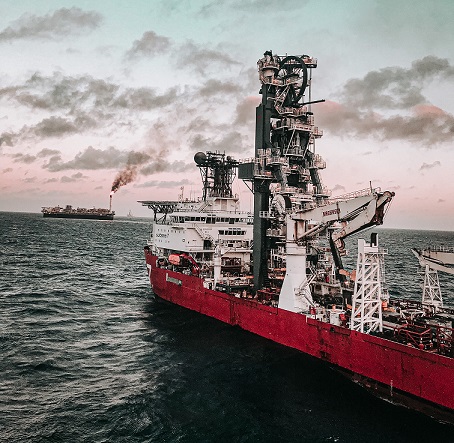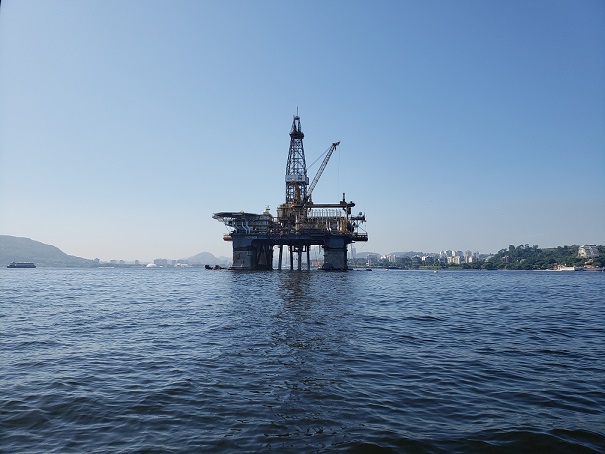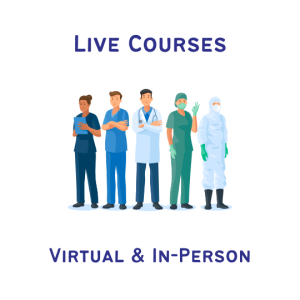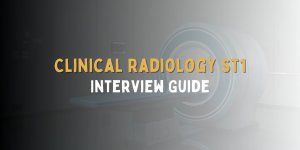
Published April 27, 2023 | Updated August 23, 2023
By Dr Hrushikesh Ramchandra S
Dr Hrushikesh Ramchandra S began his professional career in the Department of pathology at B.J.Government Medical college, Pune, India as a Tutor in May 2008. Soon he joined the Oil & Gas Offshore industry as an Occupational Physician where he worked in India as well as abroad for 7 years.In 2016, he joined as a Post Graduate Resident Doctor in the Department of Physiology at B.J.Government Medical College and continued to become Assistant Professor in the same Department. Presently he is working as a Medical Data Reviewer for an International CRO.
I’m Dr Hrushikesh Ramchandra S, MBBS. Today I am going to share some of the salient features related to Rig Doctor/Offshore Medic. I was a rig doctor for almost 7 years in no less than 10 countries.
Most of the above-mentioned things are based on my personal experiences and it may vary from person to person but overall, it was a great experience to work offshore.
What is an Offshore Medic?
Offshore medics are medical professionals who provide healthcare services in offshore locations, such as:
They are responsible for delivering primary healthcare, first aid, and emergency medical care to workers on-site, including conducting medical assessments and treating minor injuries, and illnesses, as well as being on call 24/7 for emergencies.

Offshore medics have previously trained as healthcare professionals including:
To qualify as an offshore medic, you must have experience in emergency and trauma care, in addition to undergoing specialised training in offshore safety, survival techniques, and hazardous materials handling.
Working as an offshore medic can be a demanding and challenging career – it is not just a side hustle – but it can also offer opportunities for travel and adventure. These jobs frequently rota 2 weeks on, 2 weeks off, meaning you can spend half of your time exploring the exotic locations around the world that rigs can often be found in.
What is it Like to Work as an Offshore Medic?
Your duties as an offshore rig doctor will depend on the location, company, and workforce. These may include:
You will usually be expected to work 12-hour shifts, though, in the case of an emergency, you will be expected to respond. Duration of stay depends on the job, but will generally include 14-28 days onboard, followed by the same number of days off, on-shore.
However, you must remember that any offshore rig, barge, or platform cannot work without a doctor or medic onboard, so you are not allowed to leave the work area if a suitable reliever fails to make it on board.

Pros of Working as a Rig Doctor
1. Salary
The salary is often better compared to any land job for the same grade.
Salary is on a per-day basis, so the more time you spend offshore, the more money you get. Some companies even pay more when you stay beyond the tenure.
2. Use Off-Time to Study
This is an ideal job for recently-qualified doctors who want to earn & study for membership exams and post-graduate qualifications, as the workload is limited.
3. Low Cost of Living
The cost of living is very nearly nil while off-shore as food and accommodation are provided by the company. A doctor can extract ample savings from this salary. Even travel allowances are fully paid by the company.
4. Travel
An experienced candidate gets to travel & see remote locations even globally at the expense of the company.
5. 1:1 Work:Leave Ratio
The candidate gets a well-deserved time off following time on the vessel, rig, or platform, which is equal to the number of days they have worked off-shore during this stint (usually 14-28 days).
6. Option for Extra Work
As a rig doctor, you can use your holidays however you want – whether that’s resting or doing extra work. You can even do a part-time private clinical practice while in your time off.
7. All-Expenses
Increments & bonuses are extremely generous.
The onshore specialist training is often fully paid along with attractive rewards to entice you to join. Hotel stays & travelling for the training is also fully paid for by the company.
8. Move Up the Ladder Quickly
An experienced candidate can easily jump from smaller modular Rigs to bigger Jack up advanced Rigs within a short period of time, with a significant hike in salary.
9. Become a Safety Officer
A rig doctor can easily make their career in safety, as it is not difficult for them to learn the duties of a safety officer.
They have to clear the NEBOSH course (National Examination Board in Occupational Safety and Health), but following this they can work as a safety officer in no time.
10. New Ventures
If the candidate is recruited at a start-up, they get a chance to set up a sophisticated offshore clinic as per their requirements.
11. Preference for Luxury Cruise Jobs
As compared to other doctors, an offshore doctor gets first preference when applying for jobs on Luxury cruises, due to the experience gained while working as a rig doctor.

Cons of Working as a Rig Doctor
1. Isolation
The offshore location can be remote at times & coming home immediately in case of an emergency can be very difficult.
As a matter of fact, a doctor can leave an offshore location only when his reliever doctor comes on board, so you may be stuck on the rig despite an emergency at home.
2. Inflexible Free Time
A Doctors family life may be compromised due to these on & off rotations, as for the time that you’re on the vessel or rig, you need to stay on the vessel. This means that weddings, get-togethers, and other plans need to fit into your rota.
3. Reliance on Your Reliever
You are at the mercy of the doctor who is coming on to relieve you after your 2-4 week stint is up. If your reliever doesn’t turn up on time, you must stay on board until someone does. This means you might miss important plans.
4. Less Clinical Exposure
Candidates may experience a lack of clinical exposure as they will be seeing only those patients who will be onboard at that time. These won’t be your typical hospital inpatients, so unless your future is in General Practice you may get de-skilled.
5. Career Progression
If you’re keen to progress through training and become a consultant, this might not be the job for you. These are not training posts, so you’ll have to plan carefully in order to use the time wisely.
You could plan this job as a post during a year out/F3 year, but make sure you’re making the most of it by adding QIPs, publications, or passing membership exams.

Offshore Medic Job Requirements
If you’re considering working as a rig doctor, you’ll need to undergo specialised training in addition to your medical degree, as well as ideally having some experience in Emergency or Intensive Care Medicine. You’ll also need to make sure you have all of the mandatory documents in place for working overseas and working safely on an offshore rig.
Required Qualifications
While this isn’t a requirement for all offshore doctor jobs, any jobs in the UK (and many overseas) require an HSE-approved offshore medic certification. Depending on the location, there may be local offshore medic training courses required, which will be in the job requirements.
Anyone (including non-medics) who wants to work offshore will need to attend a STCW course, which follows standards set out in the International Convention on Standards of Training, Certification and Watchkeeping for Seafarers 2010. These courses must be OPITO (Offshore Petroleum Industry Training Organisation) approved.
Each of these STCW courses lasts for around 3 days (1 day for HUET), meaning you’ll need to spend 12-15 days getting these certifications. Most of the certificates are valid for 5 years (4 years for HUET), after which you’ll be able to undergo a refresher course termed BOSIET, which is valid for 4 years.
The BOSIET (Basic offshore safety induction & emergency training) course is a shorter course that covers all the important points & emergency training included in STCW. This course also needs to be OPITO approved, so avoid cheaper non-certified courses.
In general, you will need to pay for your own STCW courses as these courses are a must before you can even step on a platform, vessel, or Rig. The cost for BOSIET will be generally borne by the company if it’s due to expire during your contract.
STCW comprises 5 different courses:
PST – Personal Survival Techniques
Includes personal actions to be taken for self-protection in emergency situations, survival at sea, and launching and entering a life raft.
PSSR – Personal Safety & Social Responsibility
Includes knowledge of and compliance with safe working practices at a basic level, human relationships on-board, understanding orders and shipboard duties & Compliance with emergency procedures.
FPFF – Fire prevention & Fire fighting
Includes necessary precautions to minimise the risk of fires aboard vessels, how fires are caused, and how to extinguish them.
EFA – Elementary First Aid (optional for Doctors)
The aim of this course is to give all persons intending to go to sea a basic knowledge of the immediate action to be taken upon encountering an accident or other medical emergencies at sea.
HUET – Helicopter Underwater Escape Training
HUET requires an additional Company approval letter for the initiation of the training. This course can have advanced steps based on the company’s requirements – for example, some of the companies expect HUET to be completed by donning SCBA (Self-contained breathing apparatus) or CAEBS (Compressed Air Emergency Breathing System).
Optional Certificates
Depending on the location you’re working in and the company you work for, there may be additional requirements as a medic, which may include:
- BLS (Basic Life support).
- ACLS/ALS (Advanced Cardiac Life Support/Advanced Life Support).
- ITLS/ATLS/ETC (International Trauma Life Support/Advanced Trauma Life Support/European Trauma Course)
You should check whether these certifications need to be approved by the American Heart Association, Resus Council UK or another organisation.
Mandatory Work Documents
In addition to medical and safety-related certificates, you will need to produce certain documents in order to work offshore.
Police clearance certificate(PCC)
Once the candidate is shortlisted, they will receive a letter from the company directed towards the Police authority of his hometown for issuing a Police Clearing Certificate.
PCC is a mandatory document for working offshore, in fact, a helicopter pass will not be issued if the candidate fails to give the PCC on time. In some countries, 30 to 45 days are needed to obtain a valid PCC, so the candidate should make sure that they ask for a window period of at least 45 days for obtaining the PCC from his respective city.
Working Visa
If you are working outside of your country, you’ll need to have a visa that allows you to work. This may need to be sponsored by your company – check the requirements of both the company and the countries you will travel through.
CDC (Continuous Discharge Certificate)
This is an identity document that is an official and legal record of your sea experience. These aren’t always mandatory for doctors, but if required by specific companies they will be issued by the company itself.
OGUK Certificate
The OGUK (Oil & Gas UK) certificate is a medical requirement to prove your fitness to work in the oil and gas industry. You’ll need this to work on a UK rig, which is becoming a worldwide standard. These are sometimes paid for by the company.












